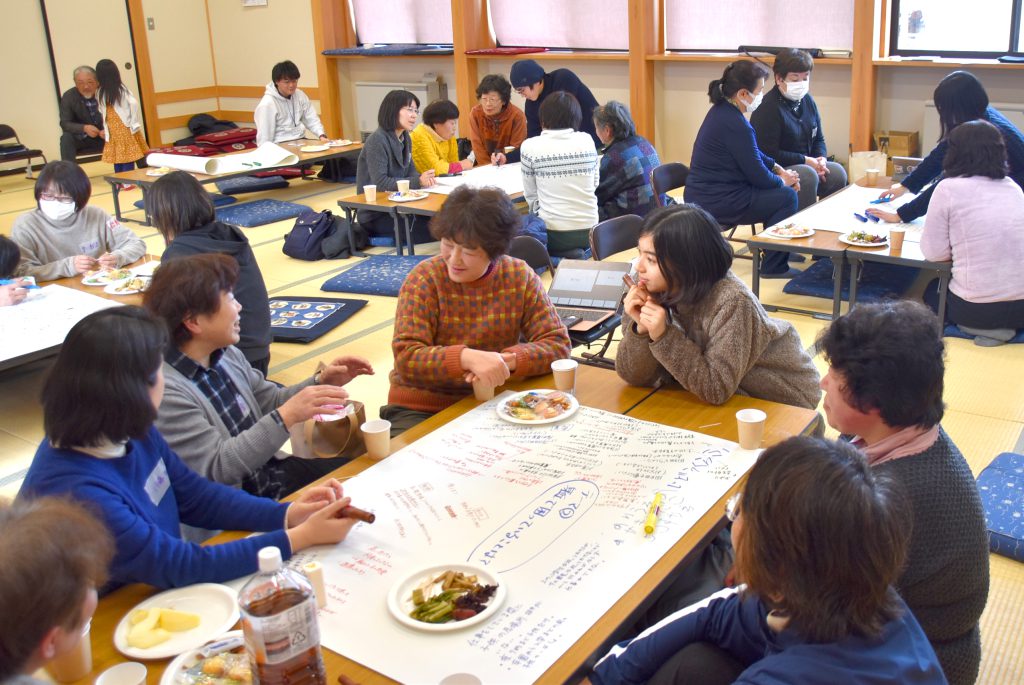Research on Community Planning and Regeneration
We explore the methodologies and techniques of urban design, planning, and management, as well as the fundamental theories that underpin them, from a variety of approaches with the aim of revitalizing communities and urban spaces. We also focus on applying these theories to real community revitalization projects and urban development practice. Here, we introduce three research projects.
A practical study on realizing sustainable communities in rural, farm areas (Obuse Town, Nagano Prefecture)
The Obu-se Town Community Lab at the Research Center for Advanced Science and Technology (RCAST), The University of Tokyo has been conducting research on the continuation of communities in Urbanization Control Areas in Obuse Town, Nagano Prefecture since 2018. The town has had various urban planning regulations enacted e.g. areas that are designated as regulation relaxation areas for Development Permission Criteria (Ordinance 3411 area) and landscape regulations. However, as a shortage of workers to take part in such efforts become a pressing issue due to population decline, there is a need for a new set of regulations that are more suitable for future urban conditions. To address this, we have been conducting a survey of all villagers in a community, conducting a comprehensive study of their farmland, creating opportunities for dialogues, and conducting a survey on branch-family housing. Based on the results of these surveys, we will continue to hold more dialogue sessions and implement place-based planning with people in the local community in order to realize a better living and farming environment.

Research on the impact of vacant housing rehabilitation on local communities (Nagano City, Nagano Prefecture)
The Obu-se Town Community Lab at the Research Center for Advanced Science and Technology (RCAST), The University of Tokyo has been conducting research on the continuation of communities in Urbanization Control Areas in Obuse Town, Nagano Prefecture since 2018. The town has had various urban planning regulations enacted e.g. areas that are designated as regulation relaxation areas for Development Permission Criteria (Ordinance 3411 area) and landscape regulations. However, as a shortage of workers to take part in such efforts become a pressing issue due to population decline, there is a need for a new set of regulations that are more suitable for future urban conditions. To address this, we have been conducting a survey of all villagers in a community, conducting a comprehensive study of their farmland, creating opportunities for dialogues, and conducting a survey on branch-family housing. Based on the results of these surveys, we will continue to hold more dialogue sessions and implement place-based planning with people in the local community in order to realize a better living and farming environment.
Research on the impact of vacant housing rehabilitation on local communities (Nagano City, Nagano Prefecture)
Over the past 10 years, more than 100 vacant houses and stores have been renovated in the area in front of Zenkoji Temple in Nagano City. In 2020, we began a joint research project with MYROOM, the company in charge of coordinating this project, with the aim of clarifying the impact of the renovation of vacant houses on the local community and society. We are working on the inheritance of social capital brought about by the reclamation of vacant houses, the construction of networks, the decision-making process of migration, the level of well-being of residents, and the quantitative evaluation of urban spaces. We are also focusing on the fact that the accumulation of vacant houses in a particular area suppresses gentrification that is often brought about as a result of improving a living environment.
Research on the regeneration of suburban residential areas through multi-actor collaboration (Yokohama City and Kawasaki City in Kanagawa Prefecture, Hidaka City in Saitama Prefecture, and others areas)
Since October 2019, the Suburban Future Design Lab has been conducting research to find ways to maintain and revitalize suburban residential areas. Universities and real estate developers play a central role in the research activities, collaboration with government, local residents, and local businesses, exploration of effective collaboration methods to collaborate, and development of methods and policies. In addition to considering methods of community development, we have conducted a survey on lifestyle changes caused by COVID-19 and an analysis of suburban residential residents’ subjective evaluation of convenience and accessibility of transportation. Currently, we are also examining the environment of aging residential areas from a welfare perspective and comprehensively organizing suburban residential areas.
